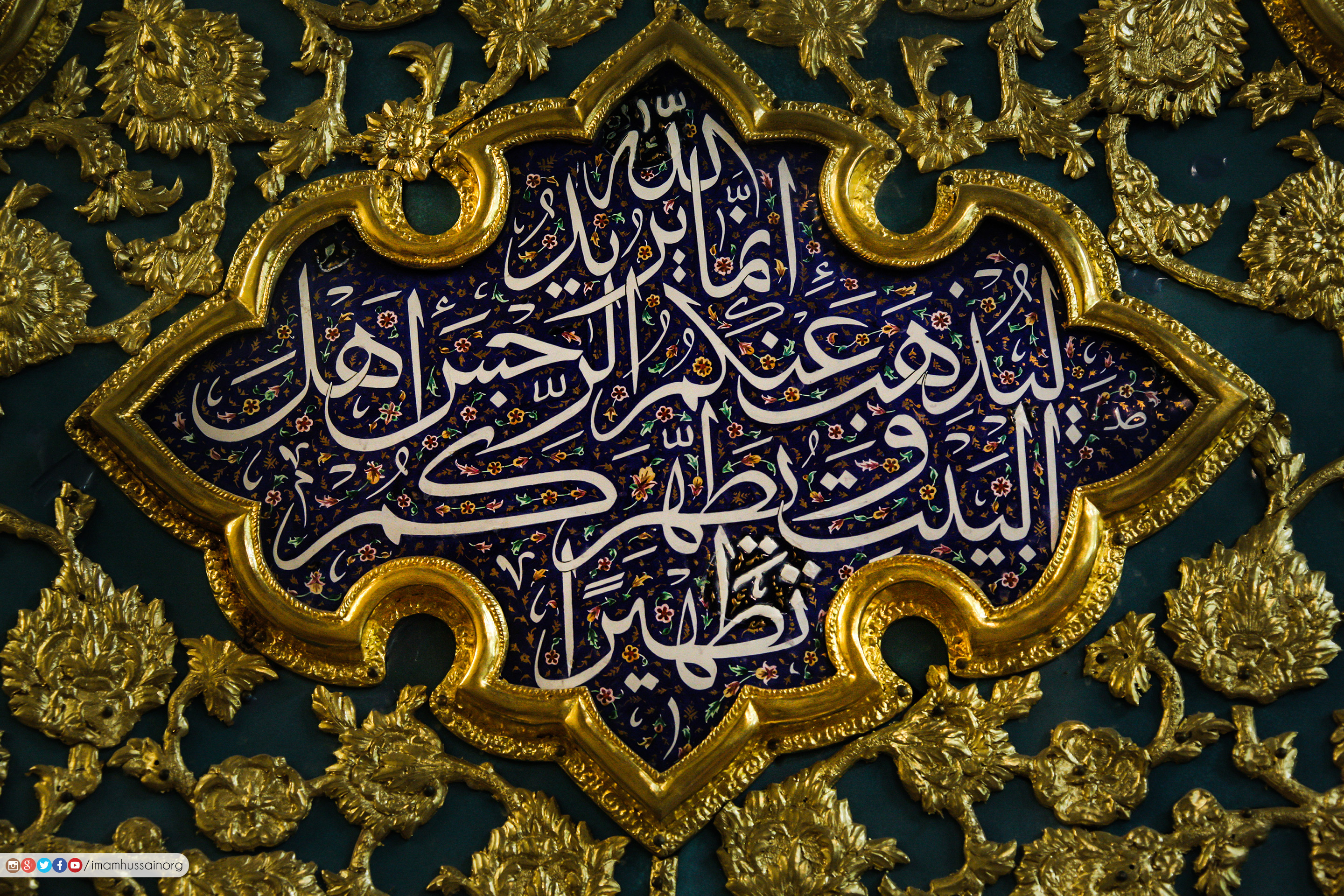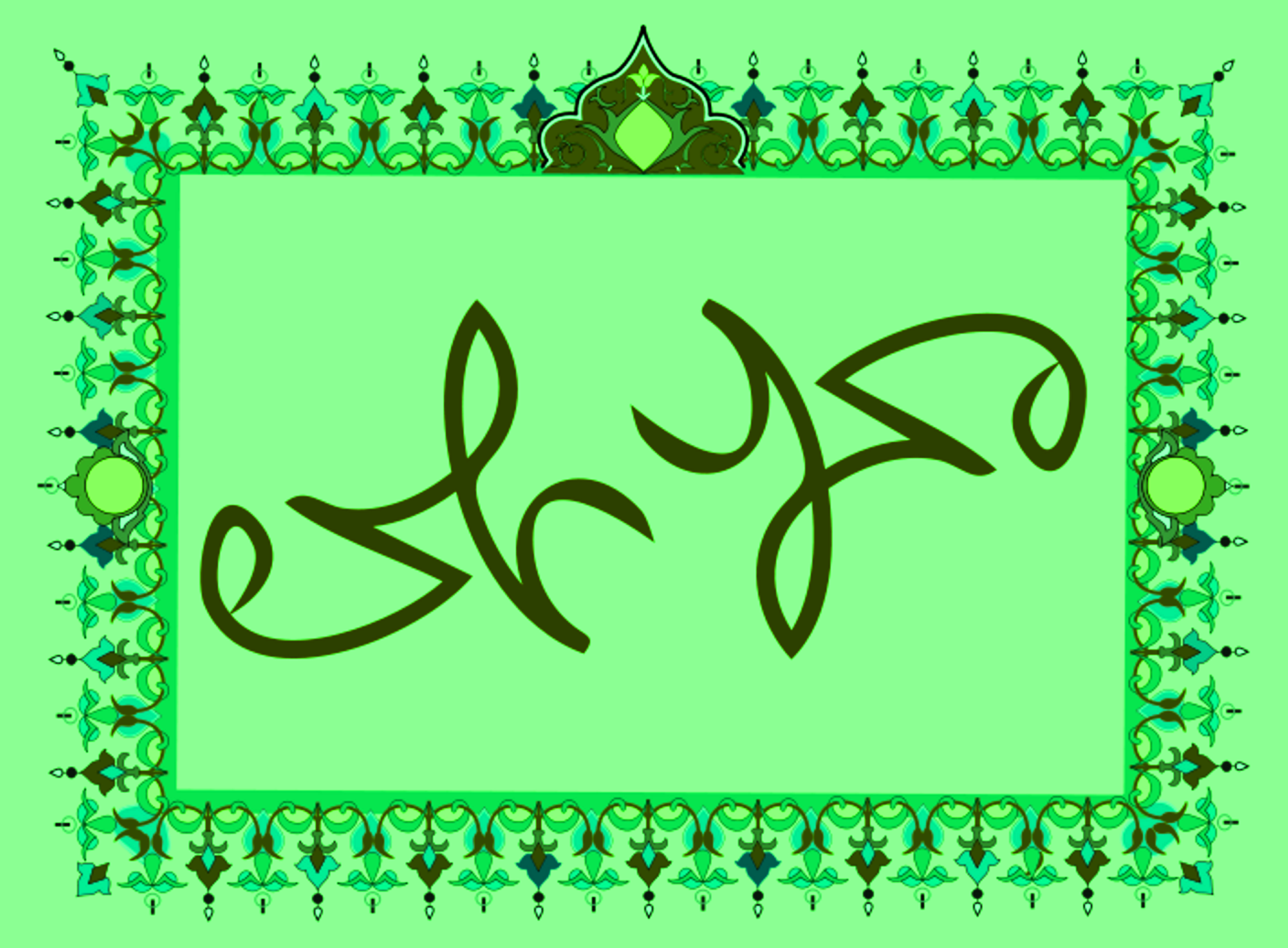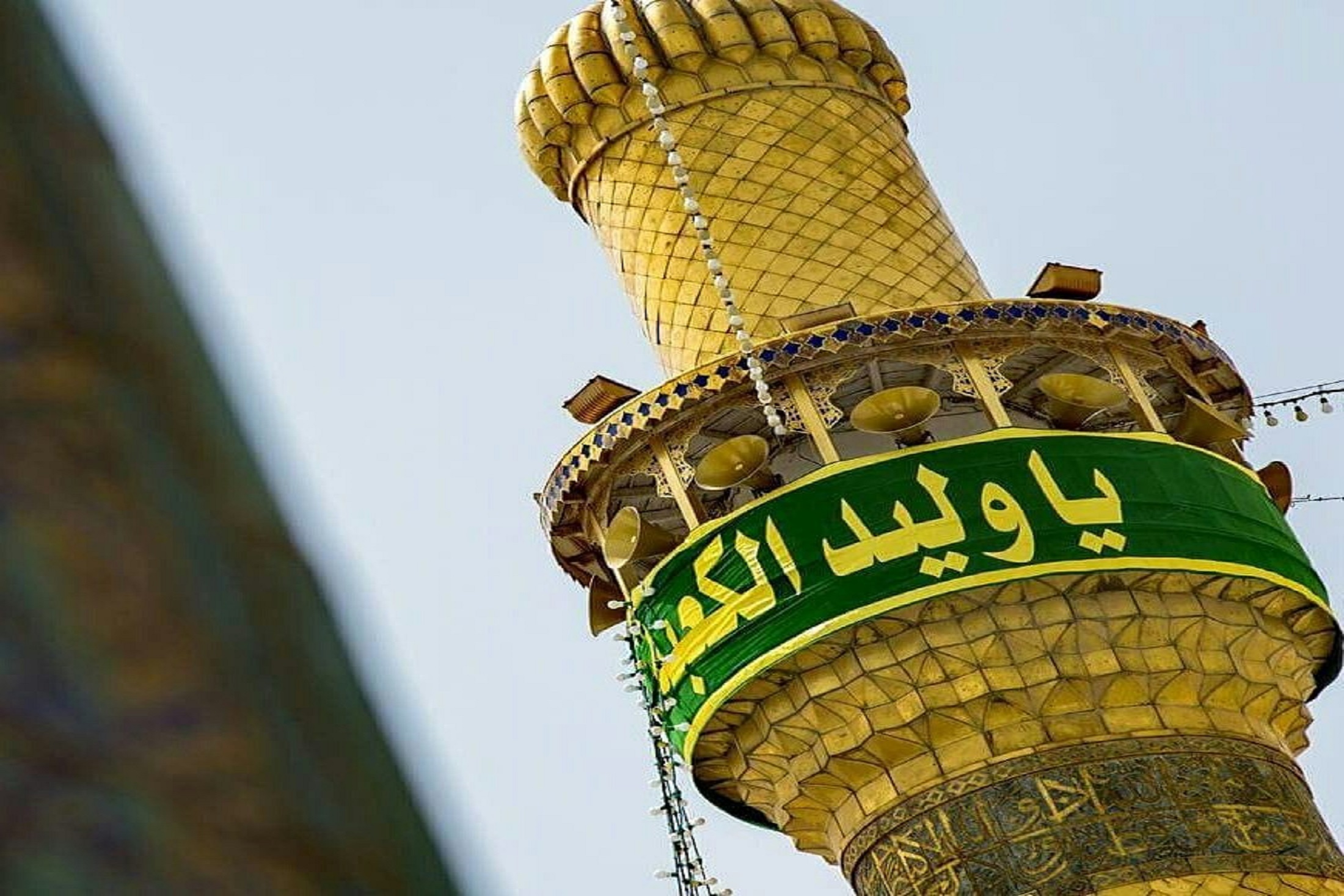The Verse of Tatheer and the contradictory views of the Ahle Sunnah scholars ( Part III) – The Third Group
Zahhaak has mentioned a point of view which is different from the above views in which he says that in the verse of Tatheer, the meaning of Ahle Bait is the progeny of the Prophet (s.a.w.a.) as well as his wives. Zahabi has narrated this view and mentioned that this view is exclusive to Zahhaak b. Mazaahim.
Who was Zahhaak?
Ibne Jauzi, like Aqeeli, has enumerated Zahhaak among those narrators who are unreliable. Even Zahabi has considered him unreliable in narrating traditions and has mentioned his name in his book “Al Mughni Fi al-Zuafaa”. They have rejected the possibility that he (Zahhaak) has seen Ibne Abbas, while some of them have gone to the extent of mentioning that Zahhaak not even spoken to any of the Prophet’s (s.a.w.a.) companions.
Yahya b. Saeed says about Zahhak, “According to me, Zahhaak is unreliable in narrating traditions. It is said that he died while his mother was pregnant with him.”
(Tehzeeb al-Kamaal vol 9 pg 173; Meezaan al-Etedaal vol 3 pg 446; Al-Mughni Fi al-Zuafaa vol 1 pg 312)
An Example from the Third Group
As we mentioned in the beginning that the third group has also adopted the view of Zahhaak contrary to the view of great companions of the Prophet (s.a.w.a.). Few instances of the same are as follows:
We include Ibne Katheer al-Damishqi in the third group. After mentioning the lies of Ikramah, he writes, “If Ikramah says that the verse of Tatheer is regarding the wives of the prophet (s.a.w.a.) and not regarding anyone else, then this view is correct and if it means that there is no one else included apart from the wives, then this needs contemplation because what has come in traditions with respect to this verse is vaster than this view.”
After this, Ibne Katheer narrates many traditions which clearly mention that this verse was revealed about the successor of the Holy Prophet (s.a.w.a.), Imam Hasan and Imam Husain and Hazrat Fatima (peace be upon them) which proves that the view of Ikramah is against the Quran and traditions.
Ibne Katheer’s Prejudice
But his prejudice does not permit him to accept this and connecting this verse with the previous verses, he says that this verse is regarding the wives of the prophet (s.a.w.a.) as well. Then he stresses and says that one who ponders on the verses of Quran will not disagree that this verse is regarding the wives of the Prophet (s.a.w.a.) because the previous verses are about the wives.1
- Tafseer al-Quran al-Azeem vol 3 pg 465 famous as Tafseer Ibne Katheer written by Abul Fida Ismail b. Katheer Qarashi Damishqi, Daar-ul-Maarifah, Beirut, Lebanon, 1409 A.H. edition
Ibne Taimiyyah has accepted this tradition to be correct
It is strange that Ibne Taimiyyah has not accepted the above two views but has presented arguments to prove the correctness of the traditions narrated by Allamah Hilli (r.a.). Allamah Hilli (r.a.) says that here we are presenting a few of the traditions which are correct according to the views of the Ahle Sunnah and which they have narrated under their reliable contents. We are narrating these traditions so that we can complete the proof for them. Among these, is one tradition which Abul Hasan Andalusi has brought in his book “Al Jam’o Baina Sihaah-e-Sittah” narrating from books like Muwatta of Malik, Sahih Bukhari, Sahih Muslim, Sunan-e-Abi Dawood, Sahih Tirmizi and Sahih Nisai.
In this tradition, Umme Salamah (r.a.) says, “The verse of Tatheer was revealed in my house while I was sitting near the door. I said to the Holy Prophet (s.a.w.a.)
“Am I not from the Ahle Bait?”
The Holy Prophet (s.a.w.a.) replied, “Surely you are on goodness and surely you are from the wives of the Prophet.”
Umme Salamah (r.a.) says that the Holy Prophet (s.a.w.a.), Ali, Hazrat Fatima and Imam Hasan and Imam Husain (peace be upon them) were in my house when the Holy Prophet (s.a.w.a.) gathered them under his cloak and said, “O God, these are my Ahle Bait, then you keep away all uncleanliness from them and purify them a thorough purifying.”
[Minhaaj al-Karaamiyyati fi Marifah al-Imamiyyah pg 84, 85 by Allamah Hilli (r.a.)]
Regarding the above tradition, Ibne Taimiyyah says that Hadit-e-Kisa is an authentic tradition and Ahmad b. Hanbal and Tirmizi have narrated it from Umme Salamah (r.a.). Muslim in his Sahih has narrated this tradition from Ayesha in the following words:
“One day the Holy Prophet (s.a.w.a.) left early from home wearing a black cloak over his shoulders. At that time Hasan b. Ali (a.s.) came near him and he took him under his cloak followed by Husain b. Ali (a.s.) whom he took under his cloak. Then Fatima (s.a.) came under the cloak followed by Ali (a.s.). Then the Holy Prophet (s.a.w.a.) recited the verse of Tatheer.”
After narrating this tradition Ibne Taimiyyah writes, the Holy Prophet (s.a.w.a.) included Fatima (s.a.) with Ali, Hasan and Husain (peace be upon them) which proves that the merit of infallibility is not limited to these individuals and it should be clear that a woman does not possess the capability of Imamat and this shows that the merit of infallibility is not limited to Imams but someone else can also be associated in it.
On the other hand, the content of the tradition is such that the Holy Prophet (s.a.w.a.) prayed for them so that they are purified from uncleanliness which means that the Holy Prophet (s.a.w.a.) prayed that they become pious as God has kept away uncleanliness from them and purified them while it is incumbent upon a believer to stay away from uncleanliness and all the believers have been ordered to do so. Allah says in the Holy Quran,
“Allah does not wish to restrict you in any way, rather He wishes that He purifies you and completed His bounties upon you.”
In another verse Allah says,
“O Prophet, you take a share from their wealth and through it purify them.”
Also,
“Surely Allah loves those who repent and loves those who seek purification”
To summarize, the Holy Prophet (s.a.w.a.) prayed that they perform the obligatory actions and stay away from the prohibitions.
At one place, Allah has mentioned for Abu Bakr, “And the pious will be saved from the fire and the one who spends his wealth in the way of Allah will be purified and he does not expect any goodness in return for his goodness on someone but he only gives to achieve the satisfaction and pleasure of his great Lord and will soon be happy.”
Similarly, Ibne Taimiyyah has narrated under verse 100 of Surah Taubah that the Muhajireen and the Ansaar carried out the order of Allah and prevented them from His prohibitions and purified themselves through obeying Allah and following religion. Therefore, according to Ibne Taimiyyah, the prayer of the Holy Prophet (s.a.w.a.) for the people of the cloak was also to some extent for the the Muhajireen and the Ansaar and hence Ibne Taimiyyah has gone ahead and claimed that the people of the cloak were no better than the Muhajireen and the Ansaar.
[Minhaaj al-Sunnah vol 5 pg 13-15 by Ibne Taimiyyah al-Harrani, Egypt edition, 1409 A.H.]
Clarification to the views of Ibne Taimiyyah
- He has accepted that this tradition is authentic that the verse of Tatheer has been revealed for none other than the people of the cloak.
- He as accepted that none other than Ali, Fatima, Hasan and Husain (peace be upon them) are a part of this verse. Therefore, he should be asked about the views of Ikramah and Ibne Katheer with respect to the previous verses.
- After rejecting the views of Ikramah and others and after accepting that the exclusivity of the verse regarding the Ahle Bait (a.s.), Ibne Taimiyyah rejects the argument of Allamah Hilli (r.a.), brings his argument in such a manner that it clearly makes his rejection of Allamah Hilli (r.a.) visible. First he says that Hazrat Fatima (s.a.) is included in the verse of Tatheer…”
Allamah Hilli did not mention that this verse is exclusive to Imam Ali (a.s.), rather this verse and its supporting tradition talk about the infallibility of the Holy Prophet (s.a.w.a.), Imam Ali (a.s.), Hazrat Fatima (s.a.), Imam Hasan (a.s.) and Imam Husain (a.s.). it should be clear that only an infallible is eligible to succeed the Holy Prophet (s.a.w.a.) after him and the only thing which can be said about Hazrat Fatima (s.a.) is that a woman is not eligible for Imamat. Ibne Taimiyyah further states that the Holy Prophet (s.a.w.a.) prayed for the people to be among the pious and Allah has kept uncleanliness away from them. Therefore, the highest meaning derived from this tradition is that the people were performing those deeds which were prohibited.
Did Ibne Taimiyyah understand less or was he prejudiced?
We need a completely separate topic to discuss the objections of Ibne Taimiyyah and hence we stick to brevity when responding to his objections.
Firstly, the views of Ibne Taimiyyah are contradictory to the verse because the word “Innama” in Arabic is used for limitation and exclusivity whereas Ibne Taimiyyah’s views are beyond exclusivity. Hence, his views are reject the view of Allah and the Holy Prophet (s.a.w.a.).
Secondly, it has been mentioned in many reliable traditions that when this verse was revealed, the Holy Prophet (s.a.w.a.) gathered Ali, Fatima, Hasan and Husain (peace be upon them) and said, “O God, these are my Ahle Bait” and when Allah sent this verse with exclusivity and the Holy Prophet (s.a.w.a.) also limited the addressees of this verse, then how can one accept the view of Ibne Taimiyyah.
Thirdly, even if we assume that these prayer of the Holy Prophet (s.a.w.a.) was for the general people who would become pious and all the believers have been ordered to seek purity, and the meaning of this verse is to perform the order and leave the prohibition, then there remains no special merit in this verse and the Tradition of the Cloak (Hadith-e-Kisa) whereas Ibne Taimiyyah has himself said this earlier that this merit of infallibility is not limited to the Imams but is also for others.
Fourth, if the prayer was for performing the obligations and staying away from prohibitions, then why did the Holy Prophet (s.a.w.a.) refuse Umme Salamah’s (r.a.) request for inclusion? Was Umme Salamah (r.a.) from the pious ones whom Allah had already purified and she was not in need of the prophet’s prayers? Or did the Holy Prophet (s.a.w.a.) not want her to be among the pious ones?
The attempt of Ibne Taimiyyah despite that fact that there is divine intent and the prayer of the Holy Prophet (s.a.w.a.) that the Ahle Bait become pious is nothing but against the facts. And the claim of Ibne Taimiyyah that this prayer can either be accepted or rejected is also his own assumption without any link to reality.
If life and divine opportunity permits, we will bring an article rejecting the heretic beliefs of Ibne Taimiyyah and will prove that the Ansaar, Muhajireen, Abu Bakr or Ayesha, none were equal in merit to the Holy Ahle Bait (a.s.). Those who compared themselves to them and those who were compared to them will both face perdition.
O Allah, hasten the reappearance of the addressee of the verse of Tatheer in today’s time i.e. Imam-e-Zamana (a.t.f.s) and include us among his helpers and servants.



